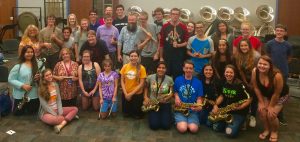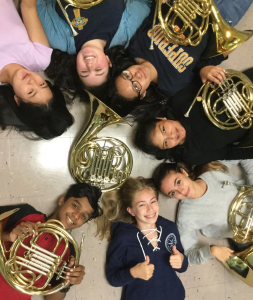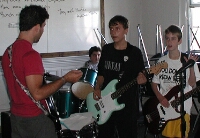 The Mockingbird Foundation provides funding for music education for children, through competitive grants, emergency-related grants, and tour-related grants – more than a million dollars, and counting. Competitive grants are awarded through a two-tiered grant application process that is among the most competitive: We are currently able to fund fewer than 1% of inquiries received (e.g. $40K on $1.4M in inquiries). That’s in part because the need is so widespread, and in part because we are unique in what we fund, differing from other players in this funding area in important ways:
The Mockingbird Foundation provides funding for music education for children, through competitive grants, emergency-related grants, and tour-related grants – more than a million dollars, and counting. Competitive grants are awarded through a two-tiered grant application process that is among the most competitive: We are currently able to fund fewer than 1% of inquiries received (e.g. $40K on $1.4M in inquiries). That’s in part because the need is so widespread, and in part because we are unique in what we fund, differing from other players in this funding area in important ways:
 Music itself matters – Music is powerful not only culturally and emotionally, but for skills, health, and general well-being. However, we have never funded a grantee solely on the basis of such tangential benefits (such as for music therapy), and tend to favor applicants who recognize the importance of music education for its own sake. While a laudable enterprise, music therapy is just not what we do.
Music itself matters – Music is powerful not only culturally and emotionally, but for skills, health, and general well-being. However, we have never funded a grantee solely on the basis of such tangential benefits (such as for music therapy), and tend to favor applicants who recognize the importance of music education for its own sake. While a laudable enterprise, music therapy is just not what we do.- Direct experience is best – Each grantee works to bring the power of music into the lives of a particular group of children. Several grantees have also utilized funds to expose students to music, also a laudable effort. But the Mockingbird board has historically been more interested in programs that engage students directly with music, rather than in funding musical performances for students who would only observe others experiencing music.
- Underserved niches are great – Like Save the Music and Mr. Holland’s Opus Foundation, we’ve given support to high school bands. But we’re especially proud of support we’ve given to economically, culturally, and musically distinct efforts. Many of our grantees serve children with special needs and/or underserved populations, and some have been internal efforts by dwindling indigenous peoples. Additionally, we are interested in supporting unconventional forms of instruction, and instruction in unconventional forms; and we are not focused on traditional performance skills, but are also interested in composition, vocalization, and musical improvisation.
 Unconventional outlets are interesting – Our funding guidelines define music education for children broadly and somewhat unconventionally. For example, while we have funded many schools – rural and urban, public and private, kindergarten through university – we are especially interested in efforts outside of schools, including hospitals, shelters, foster homes, prisons, churches, camps, and community centers.
Unconventional outlets are interesting – Our funding guidelines define music education for children broadly and somewhat unconventionally. For example, while we have funded many schools – rural and urban, public and private, kindergarten through university – we are especially interested in efforts outside of schools, including hospitals, shelters, foster homes, prisons, churches, camps, and community centers.- Outcomes may not be assessable – Nearly all relevant advocacy efforts have focused on putting instruments in public schools, promoting music education as a tool within broader education, and measuring outcomes in terms of assessable skills. Contrarily, the Mockingbird Foundation looks beyond public schools, and is interested in some areas for which skills may be less assessable (or even irrelevant).
Without music, life would be a mistake. — Nietzsche
